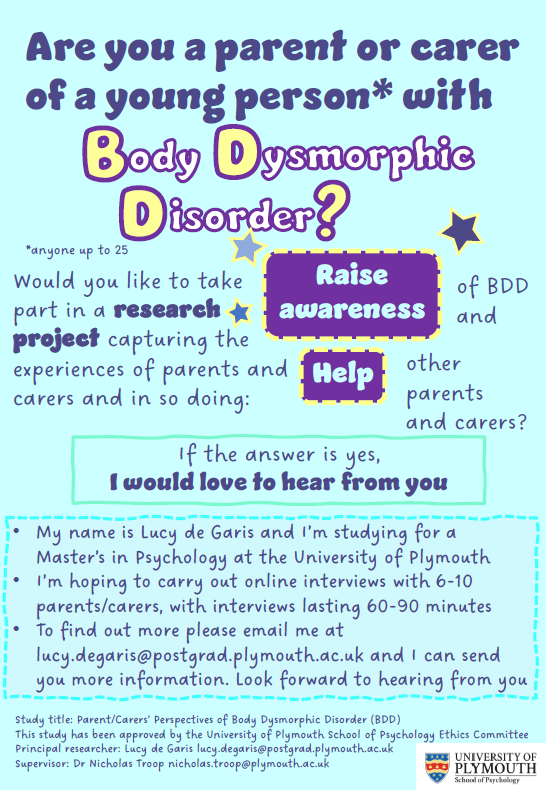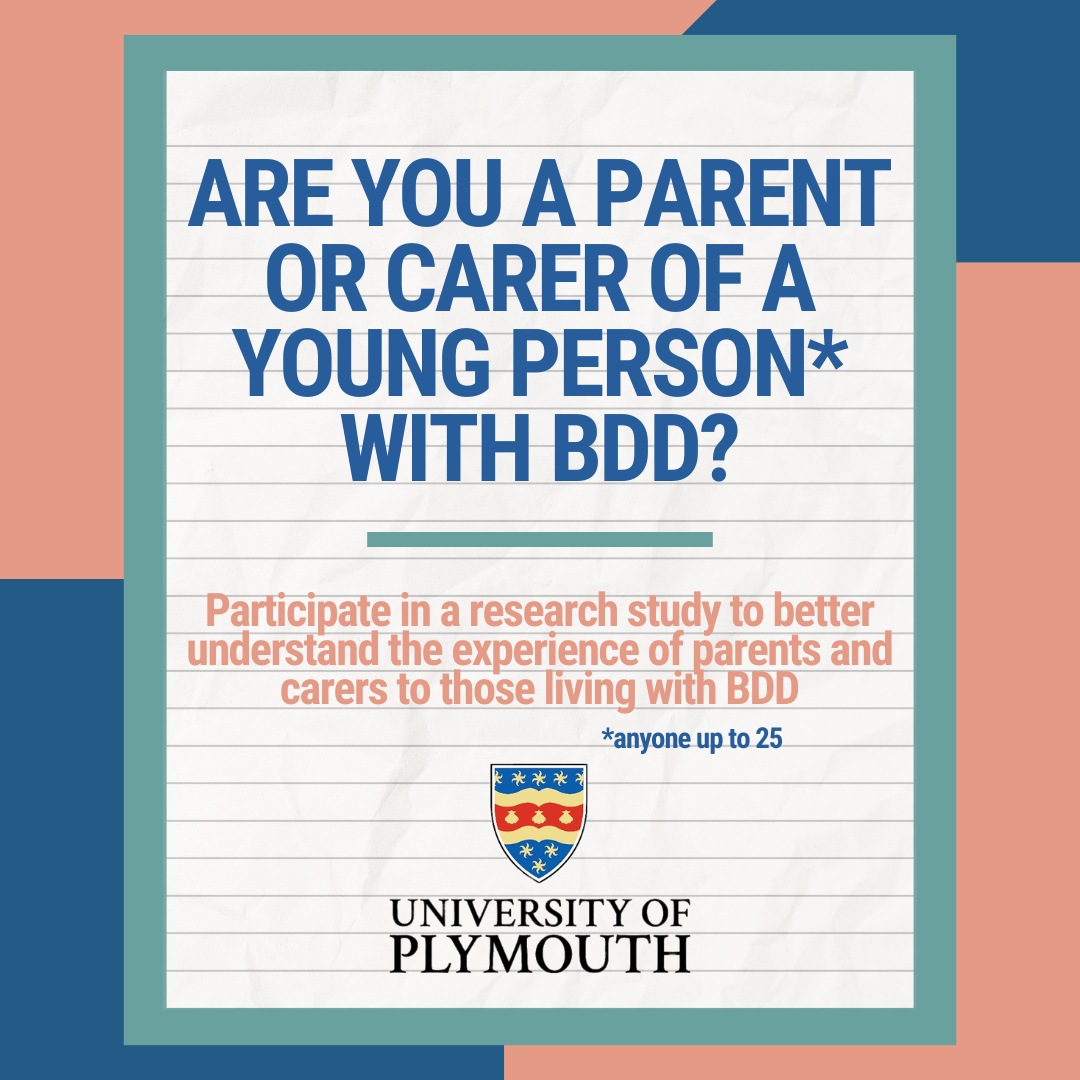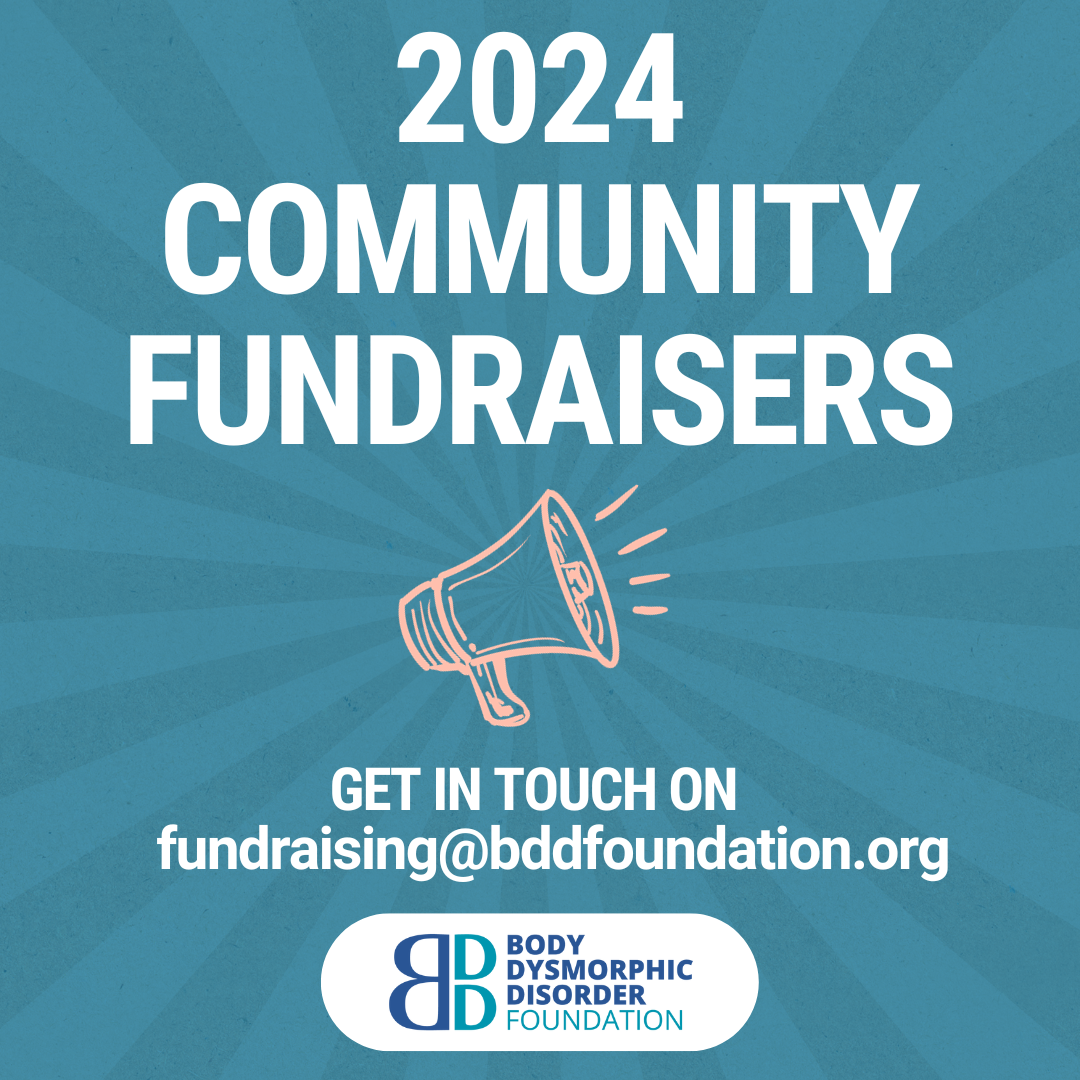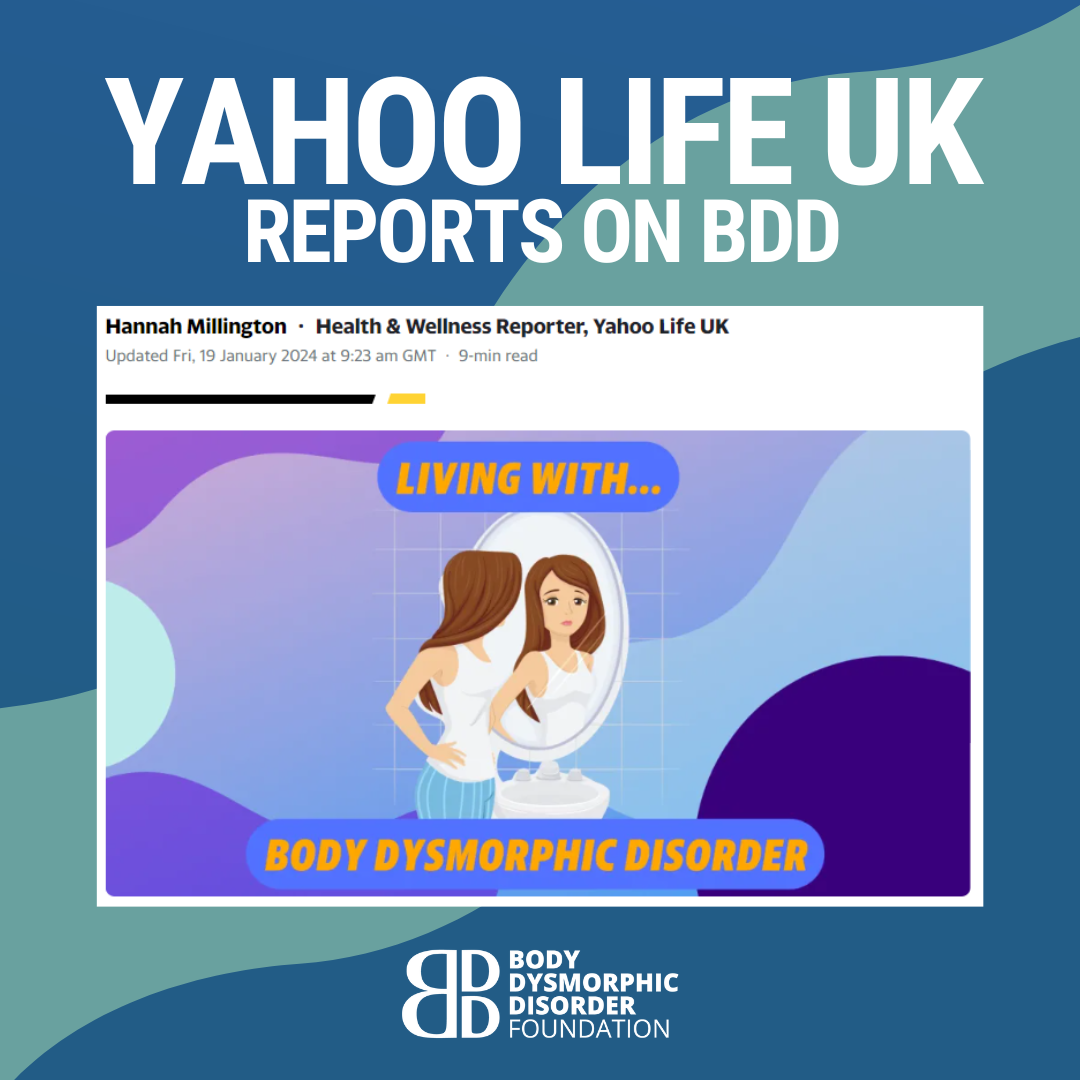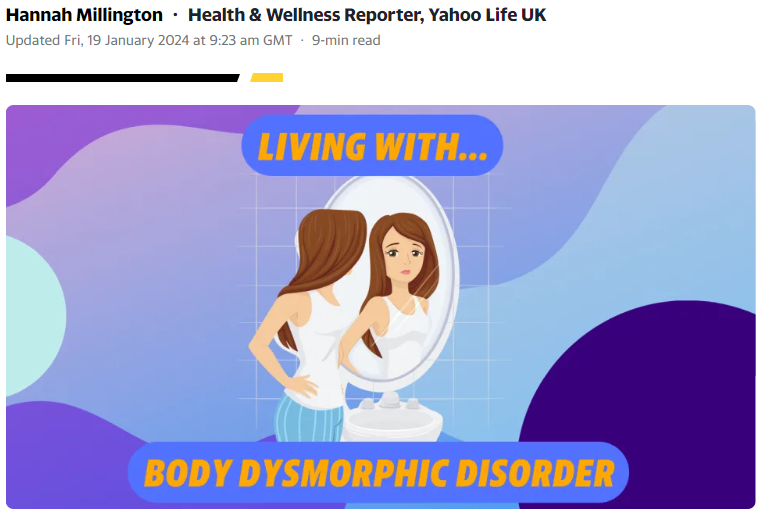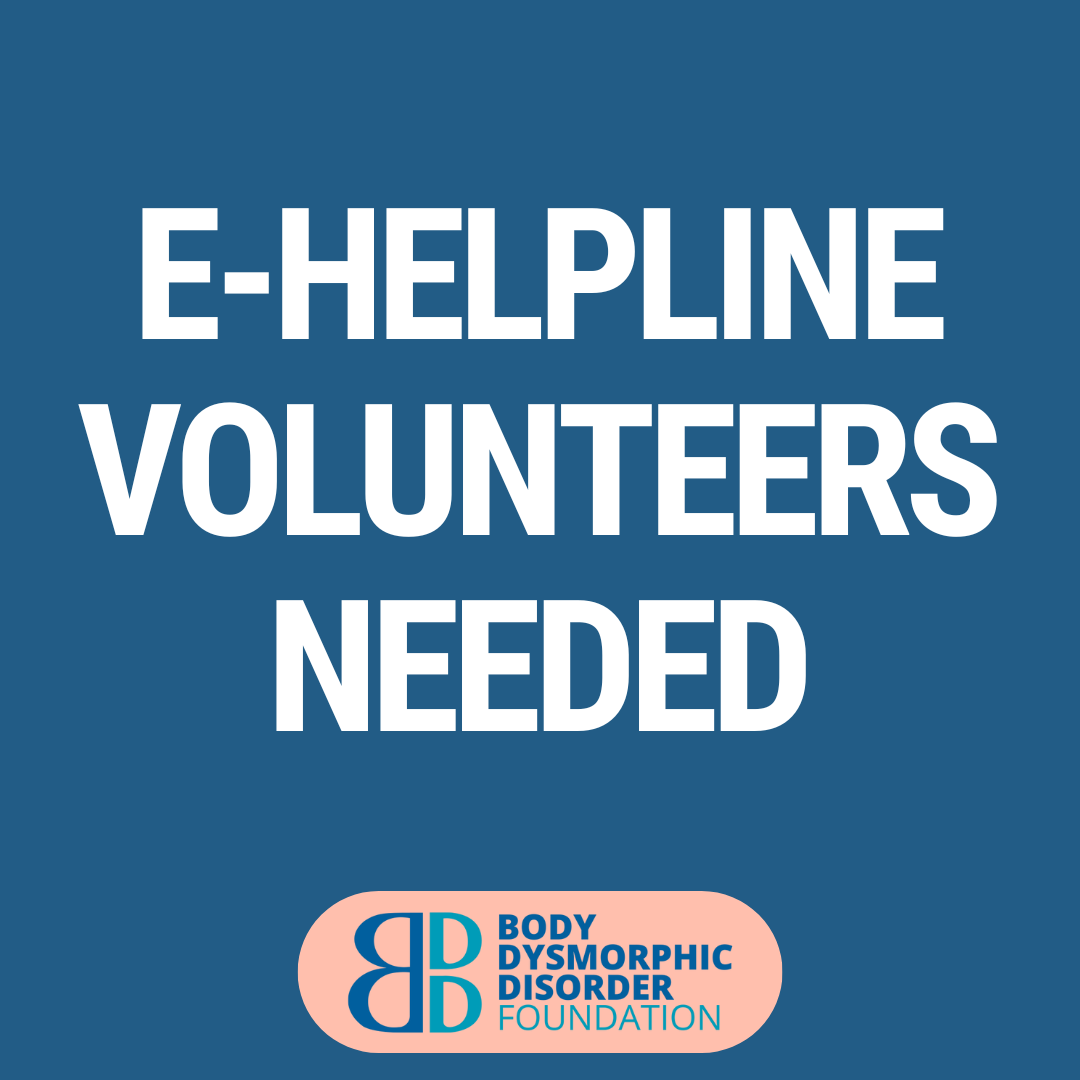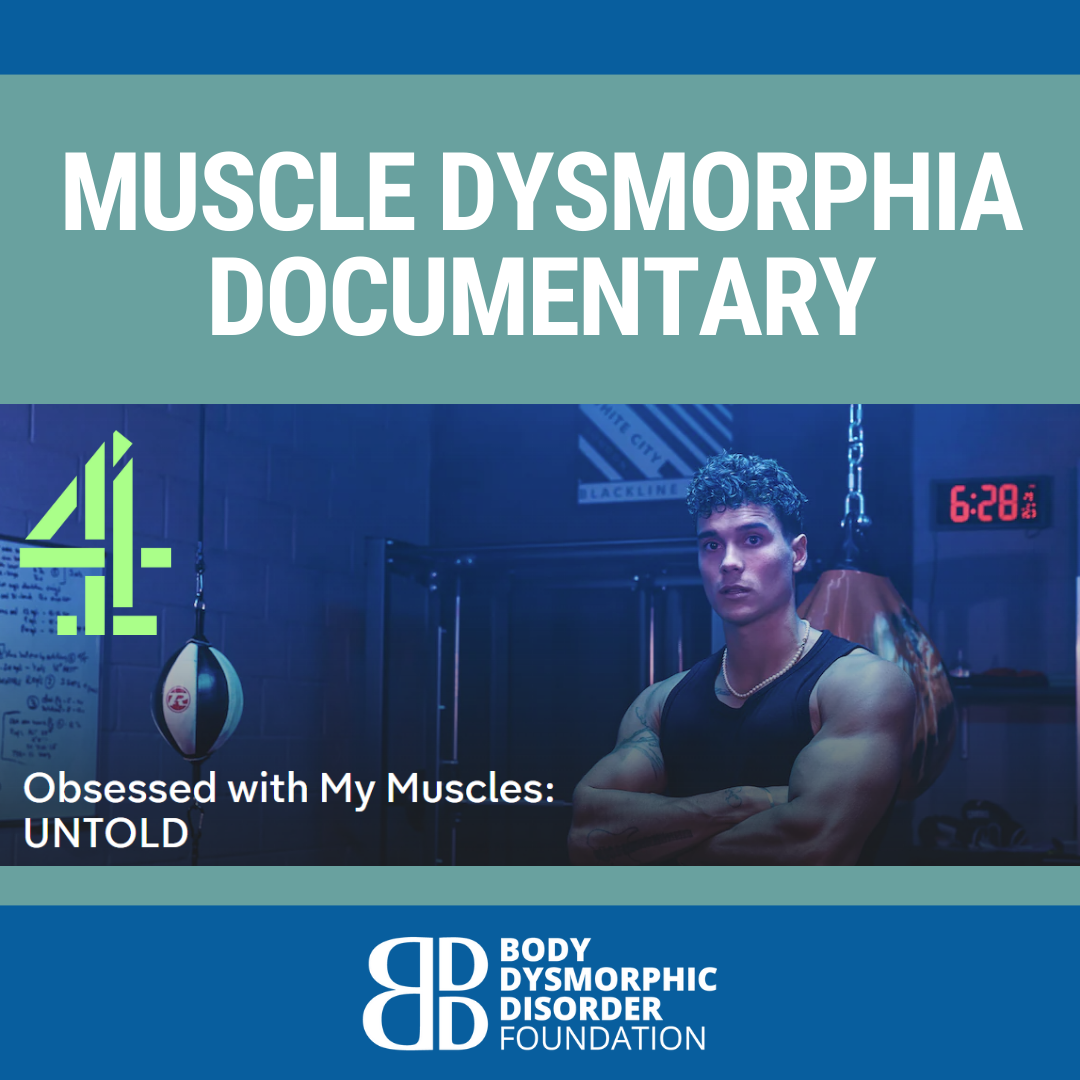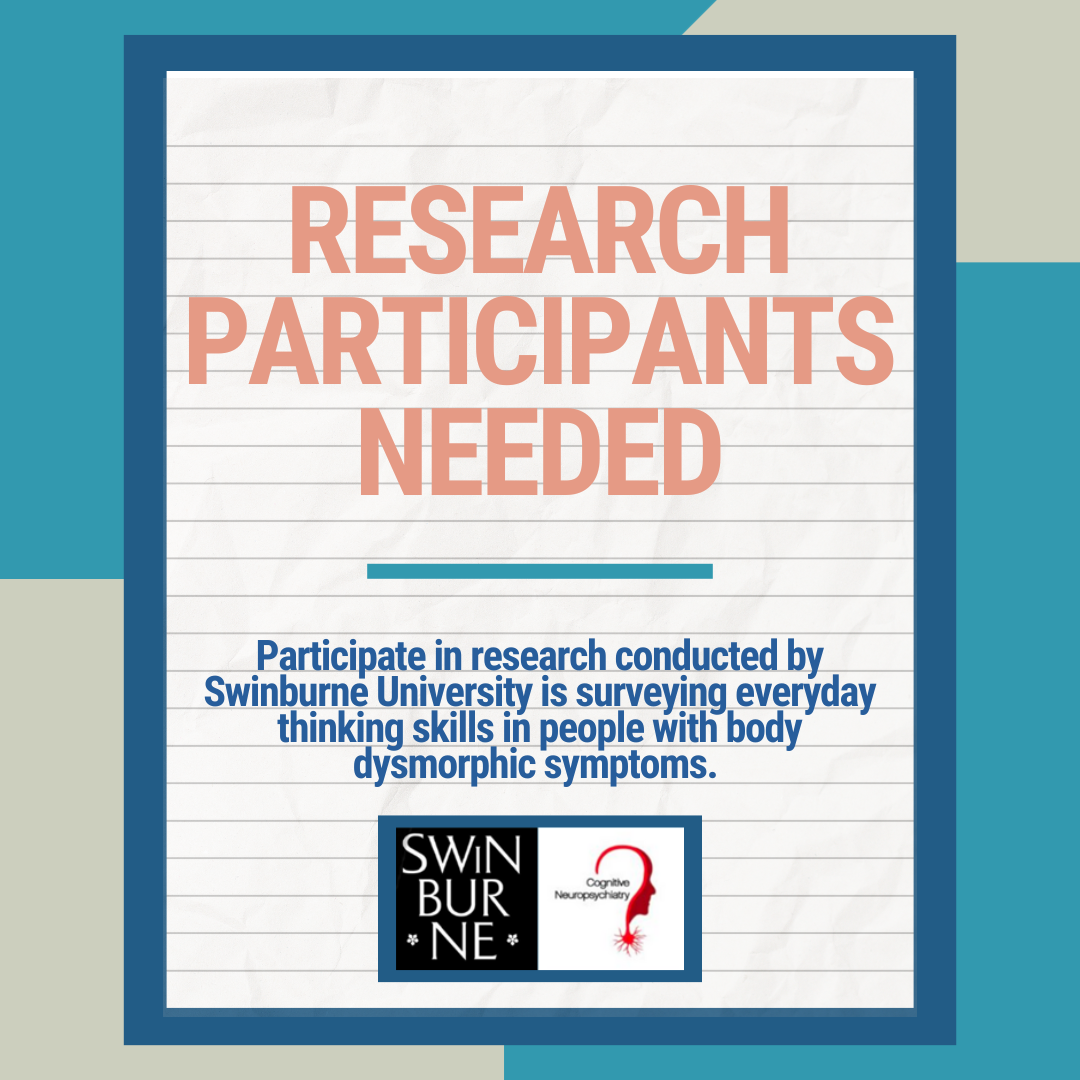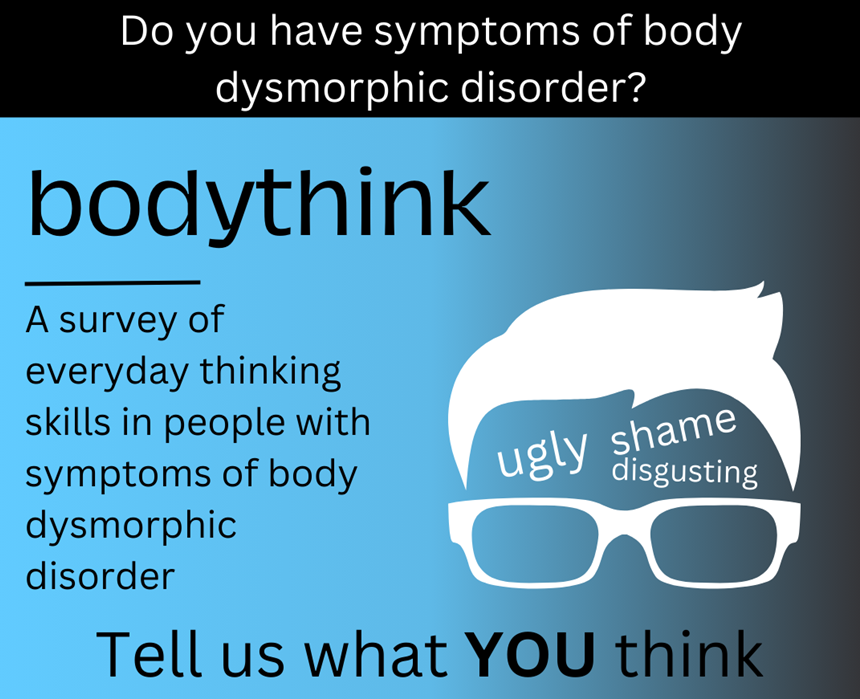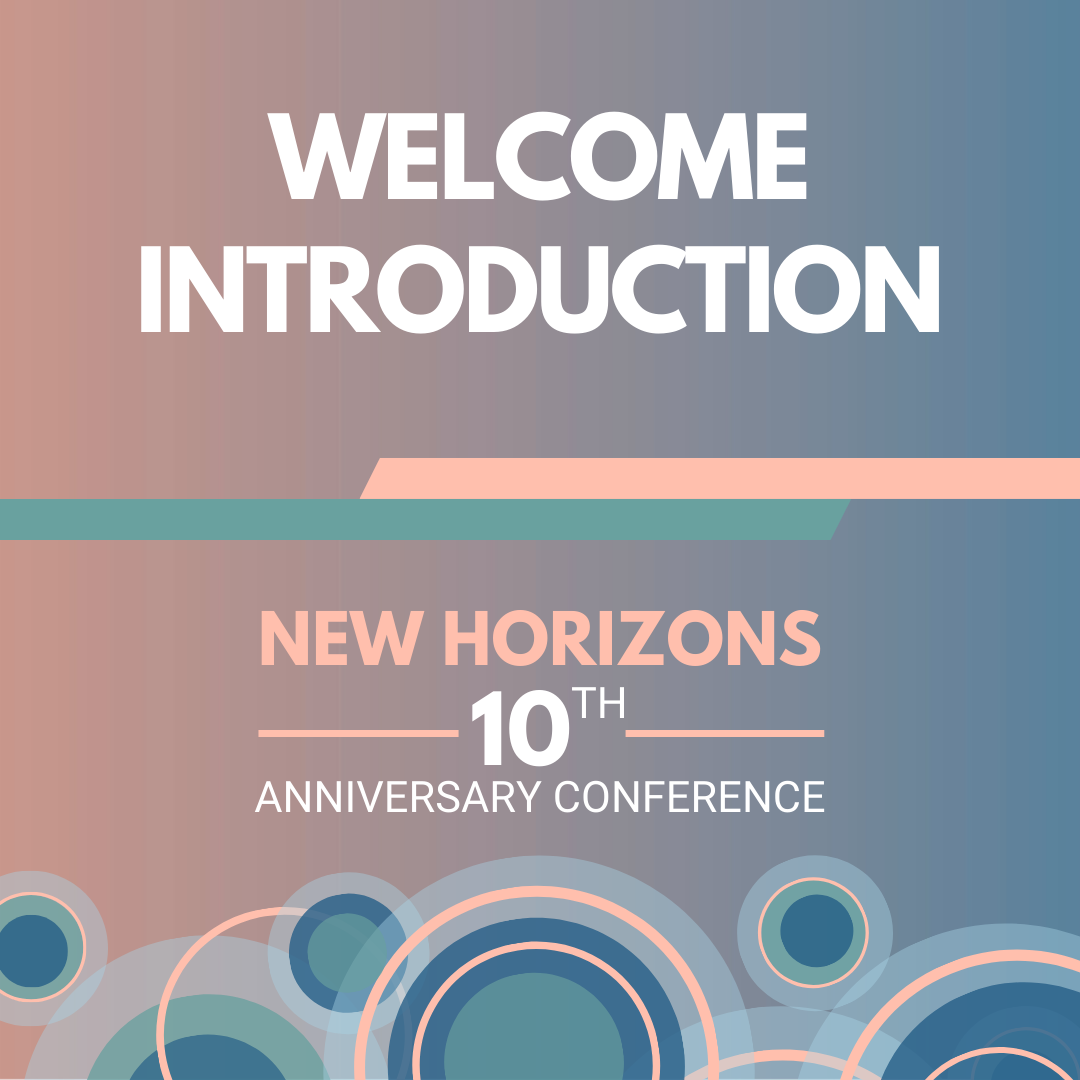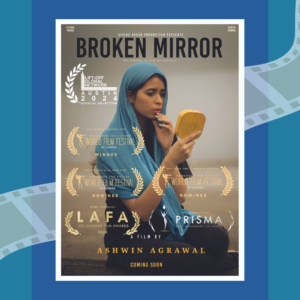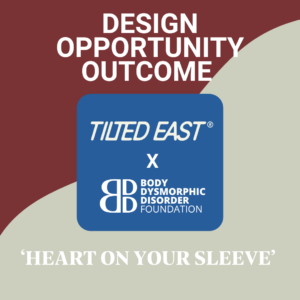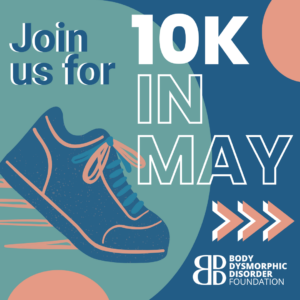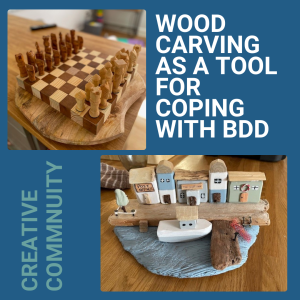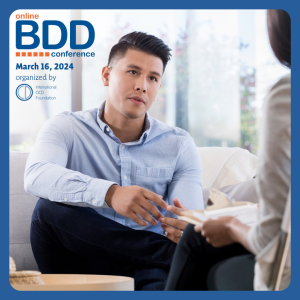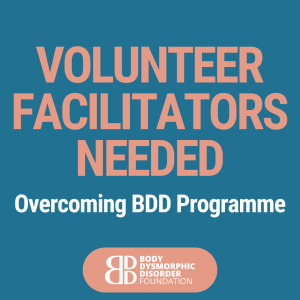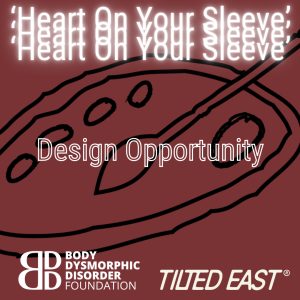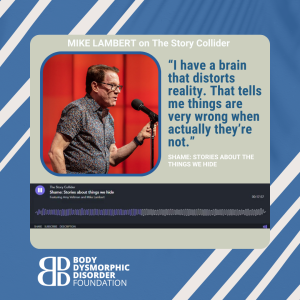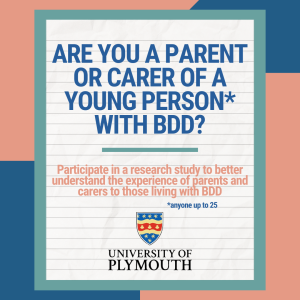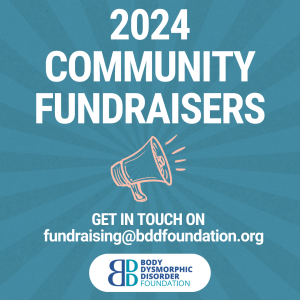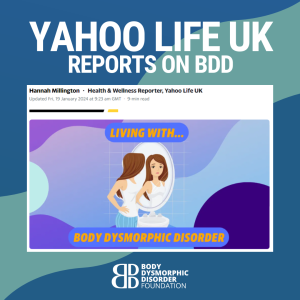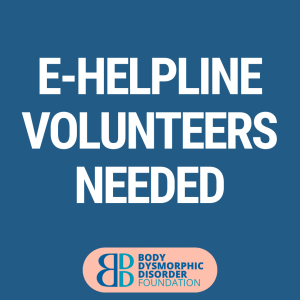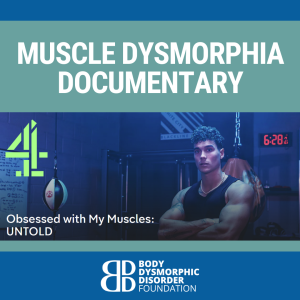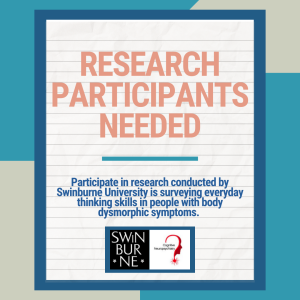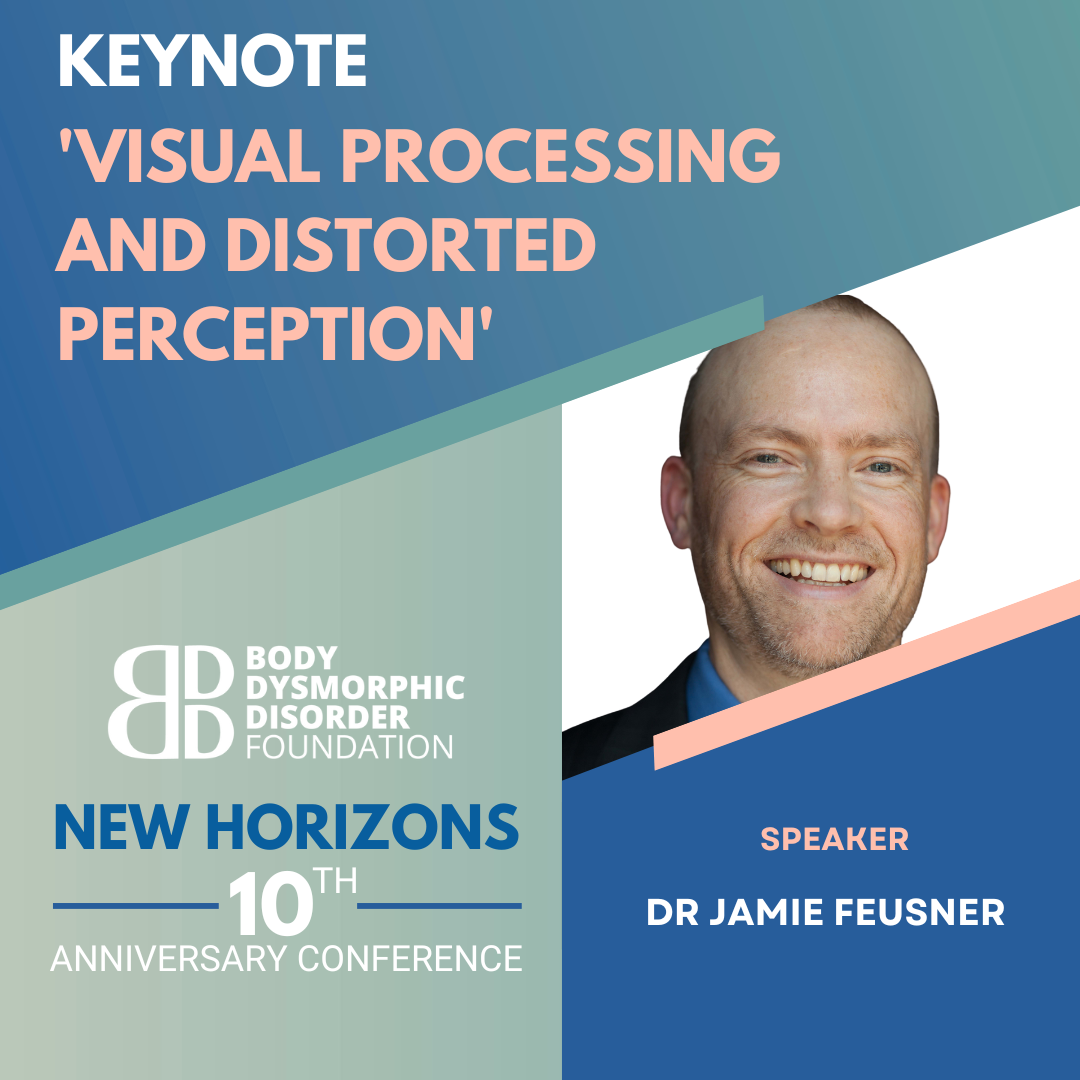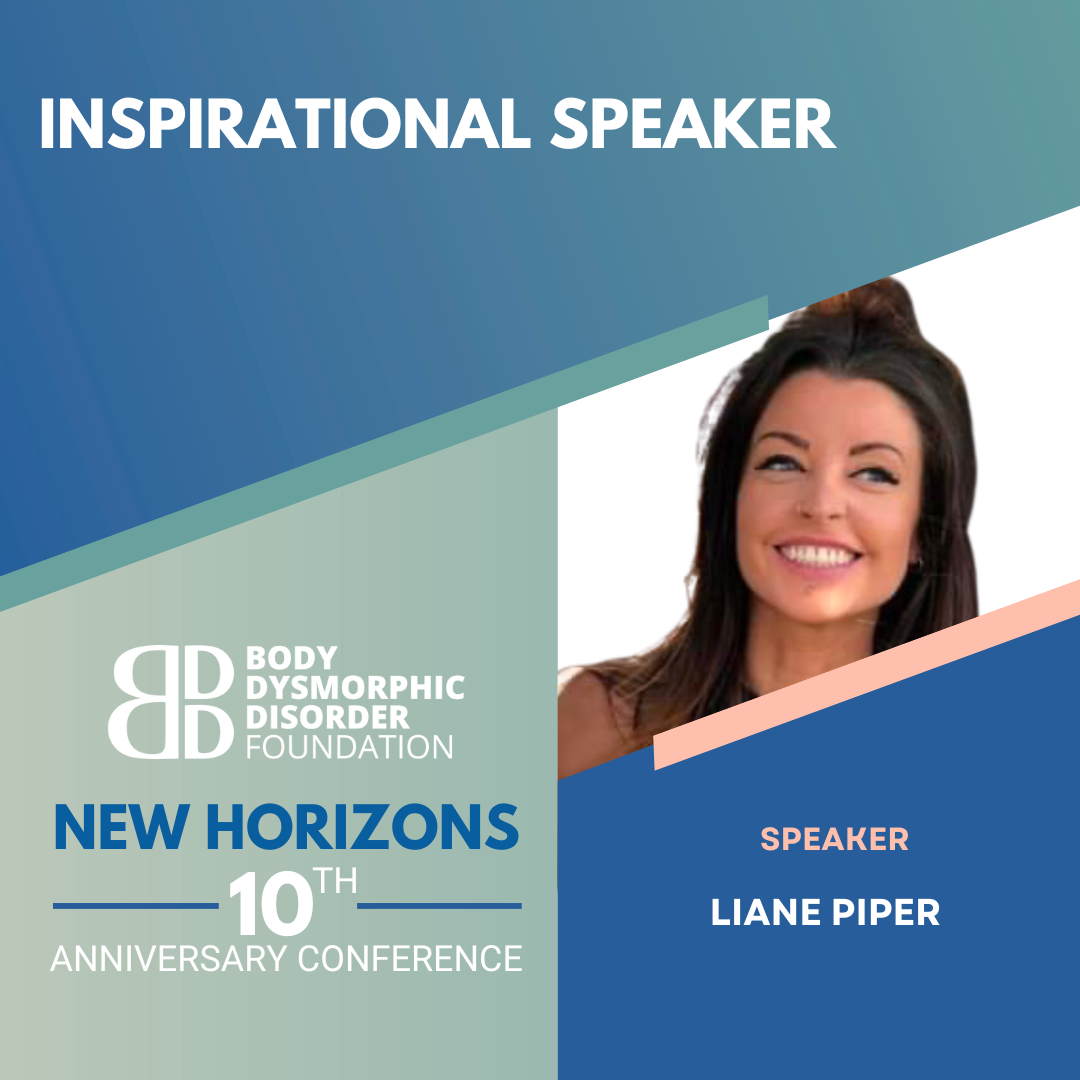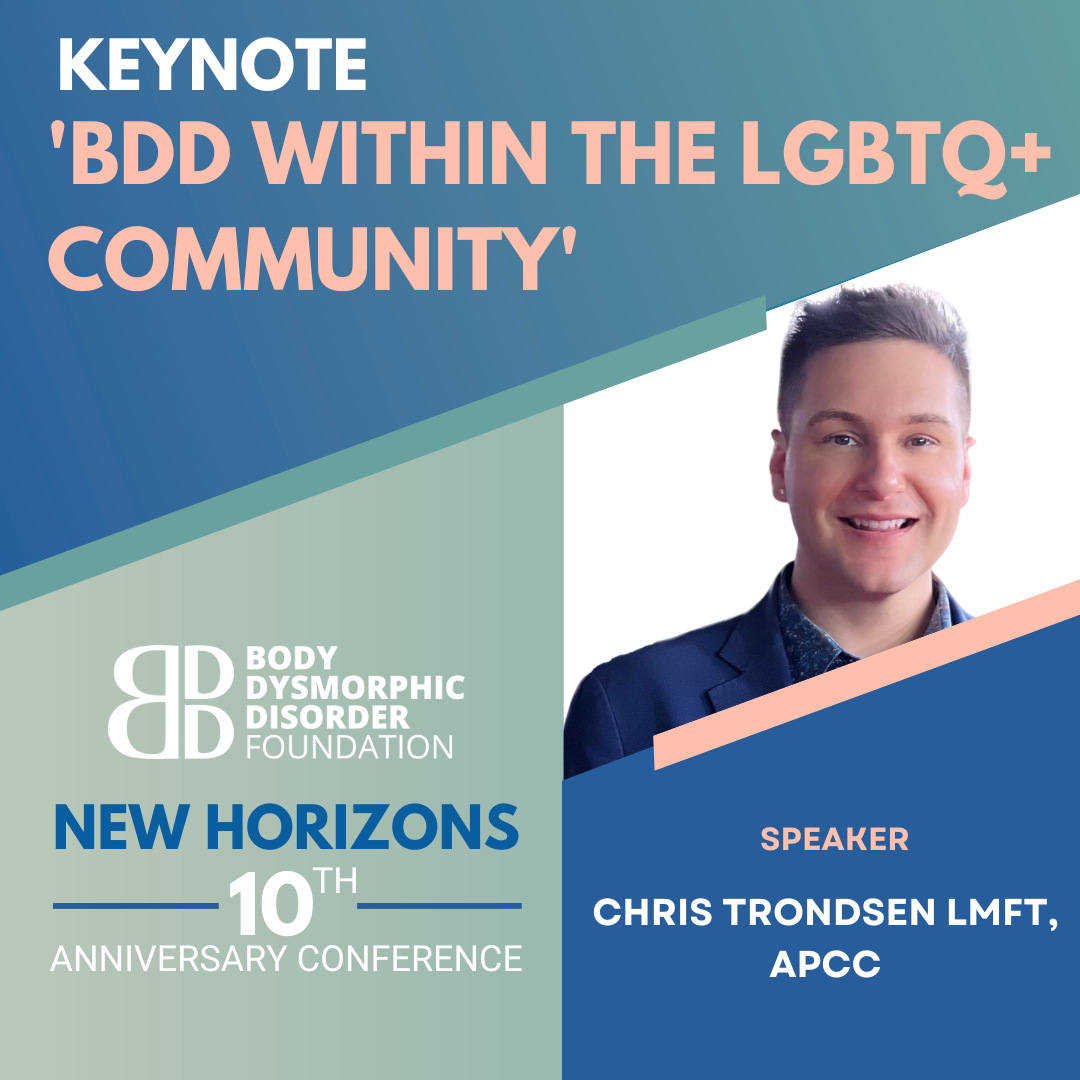The E-Helpline
The BDD Foundation’s email support service is for anyone affected by BDD, or anyone who is concerned that they, their friends or family may have BDD or a related disorder. The service carefully reads through concerns and questions and aims to reply with high quality and accessible information about BDD and the recommended treatments. Where appropriate volunteers will also direct individuals to other sources of support for BDD, or signpost to support for other conditions and other issues. More information can be found here.
The role of Volunteer
The key tasks carried about by volunteers include:
- Responding to questions and concerns of individuals that email the service
- Offering a compassionate, understanding and safe online space for those struggling
- Identifying other sources of support both within and outside of the charity
- Working within the policies set by the BDD Foundation
- Attendance of ongoing training and development sessions
Skills and Qualities
For this role, it’s important to have a good understanding of BDD and the impact it has. We look for individuals with a non-judgmental attitude, empathy and understanding, and strong written communication skills. Since the role operates remotely, we are also looking for individuals with a good level of IT literacy and confidence using a web based email system.
Training and induction will be provided. We require a minimum commitment of 2.5 hours per week on a rota basis.
How to Apply
Download the Application Form below, and send completed applications to volunteers@bddfoundation.org
For any questions about the role, please contact christian@bddfoundation.org
Applications will be reviewed and responded to by mid -February 2024
Please note – due to insurance reasons, this opportunity is open to those aged 18+, based in the UK and is subject to an enhanced DBS check.
